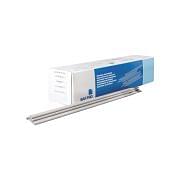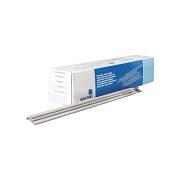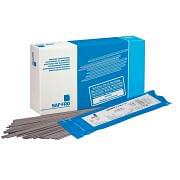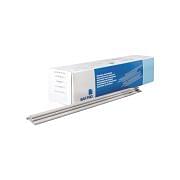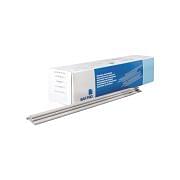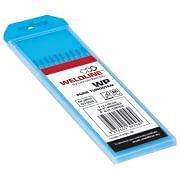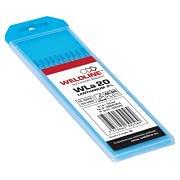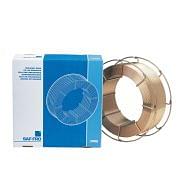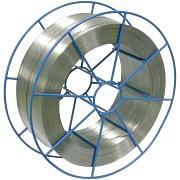Electrodes
Electrodes are essential components in machine shops, mainly used in welding processes. Their importance cannot be underestimated, as they directly influence the quality of welds and, consequently, the strength and durability of mechanical structures.
Electrodes are mainly used for welding, a process that joins two or more pieces of metal through fusion. There are different types of electrodes, each with specific characteristics that make them suitable for various materials and working conditions. Choosing the right electrode is crucial to achieving high-quality welding and ensuring the strength and durability of the welded structure.
One of the most important aspects of electrodes is their ability to weld different materials. For example, tungsten electrodes are ideal for TIG (Tungsten Inert Gas) welding, which requires precision and control, while stainless steel electrodes are designed to handle the specific properties of this type of steel, including its resistance to corrosion.
Electrodes find applications in a wide range of sectors, from construction to industrial repairs and the production of automobiles and aircraft. Their versatility makes them indispensable tools in machine shops, where the ability to make accurate and robust welds is essential to the success of the job.
The operation of electrodes varies depending on the type of welding. However, the basic principle remains the same: an electrode conducts an electric current, generating heat that melts the base metal and the electrode itself, creating a strong and durable joint.
Coated electrode welding, or MMA (Manual Metal Arc), is one of the most common techniques. In this process, the electrode is coated with a material that, during welding, melts and forms a slag that protects the weld pool from oxidation. This method is widely used due to its versatility and ability to weld different types of metals, including carbon steels and stainless steels.
TIG welding, which uses tungsten electrodes, is known for its precision and quality. Tungsten is chosen for its high heat resistance and ability to maintain a sharp tip, which allows for clean and precise welds. This technique is ideal for thin materials and for metals requiring high quality welding, such as aluminium and stainless steels.
MIG (Metal Inert Gas) and MAG (Metal Active Gas) welding uses a continuous wire as an electrode, fed from a coil through a torch. The inert or active gas protects the weld pool from oxidation. This method is quick and suitable for production welding, but requires adequate protection against wind, which could disperse the shielding gas.
Electrodes are characterised by different properties that determine their use and effectiveness in various contexts. The main characteristics include material composition, coating, heat resistance and ease of use.
The use of electrodes in machine shops offers numerous advantages, including increased weld quality, operational efficiency, versatility and cost reduction.
Focus on Specific Electrodes
- Tungsten electrodes: these are essential for TIG welding. Tungsten, with its high heat resistance and ability to maintain a sharp tip, is ideal for precise welds. These electrodes are available in different variants, such as pure tungsten, tungsten with lanthanum and tungsten with cerium, each with specific properties that make them suitable for different applications.
- Electrodes for Stainless Steels: these are designed to handle the unique properties of this material, including its corrosion resistance. These electrodes contain special alloys that improve the quality of the weld and ensure that the welded joint maintains its integrity even in aggressive environments.
- Rutile Electrodes for Carbon Steels: these are widely used for their ease of use and ability to produce high quality welds. The rutile coating facilitates arc initiation and produces an easy-to-remove slag, making these electrodes ideal for applications where speed and efficiency are essential.
Electrodes are critical components in machine shops, essential for the quality and efficiency of welding operations.

